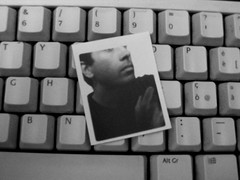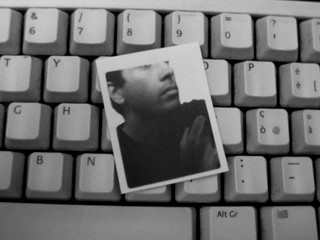Reduce your digital footprint.
Make all of your online profiles private.
Restrict the photos you post of yourself online - they can be used for purposes you may not like.
Ensure your Bluetooth is turned off to avoid "data slurping".
Be aware that mobile phones with cameras and voice recorders may be in your school and classroom.
Try and ensure that you know the true identity of everyone that you chat to online.
These pieces of advice were part of the “Cyber Safety For Teachers” presentation from our CEGSA AGM. Without being a basher of the presenter, there are a number of problems with talking about the topic of cyber safety from a negative, glass-half-empty perspective. We were given a handout at the end for which I cannot find a web pdf link, no matter how hard I search. It sets the scene for teachers online in the following way:
There have been many reports of students bullying and harassing other students using digital technologies. As technology rapidly changes opportunities for such antisocial behaviour increase including the use of sms, websites, and even the use of mobile phones to record bullying incidents which are then posted on websites such as YouTube and MySpace.
Unfortunately there have also been incidents where teachers have been bullied and harassed by students, as well as ex-students and parents.
Teachers need to aware of the risks inherent in their daily contact with digitally aware and capable students, and take steps to protect themselves.
It seems to be the recommended method to deal with these issues is to ensure that as little of ourselves makes it onto the web because it can all be used against us. Close it all down - don't give the sneaky so-and-so's any opportunity to misuse your personal data against you. After all, who wants to Google their name and see the first hit defaming their professional or personal reputation?
But I would suggest that perhaps the opposite advice is actually a safer option. Being open about who you are, what you stand for, publishing your ideas, your work, your interactions with others means that the web stores a pretty comprehensive and weighty body of evidence that would easily counter any scurrilous content authored by others with malicious intent. So, expanding your digital footprint can therefore work in your favour and it is from that digital footprint that we can verify the identity and intent of those with whom we choose to interact with on the web.
I know that there are those who feel safer behind an alias or an avatar. I would venture to say that particular choice is made more out of fear of non-online retribution in many cases (but I'm happy to be corrected).
It's from that open identity that we find our global collaborative partners, build digital collegiality and share our best practices and resources. And hand in hand with that open identity comes open dialogue, open exchanging of views.
Teachers shouldn't be running scared of the online world. If they decide to make it part of their professional existence, they can take control of their online identity and the worst efforts of others will be much easier to deal with.
Original image: 'identity card' by: Simone Petralia


